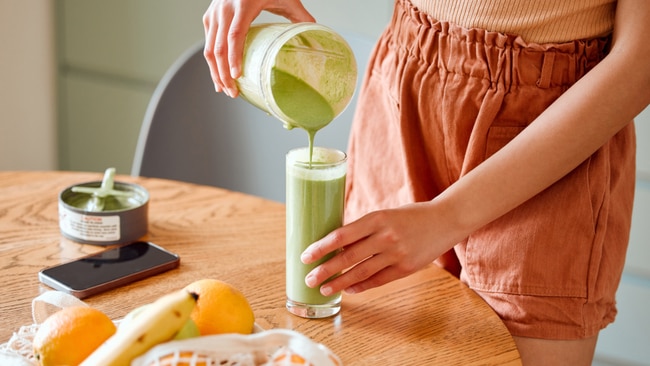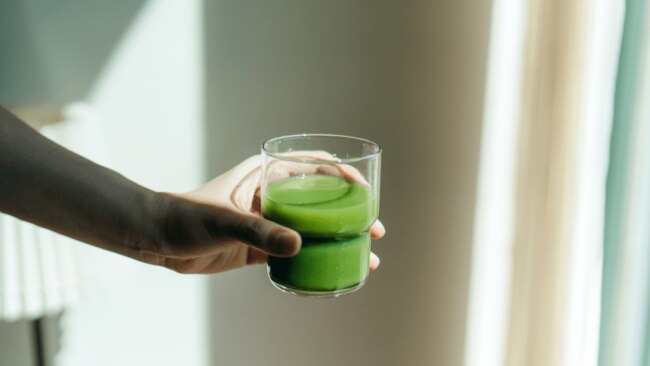Can a liquid diet reverse type 2 diabetes?
Experts weigh in
Diabetes
Don't miss out on the headlines from Diabetes. Followed categories will be added to My News.
A landmark study says yes, suggesting soups and shakes could help fast-track fat loss. But is it safe or sustainable? Experts weigh in…
It has been suggested that William the Conqueror was so overweight in his later years he adopted a liquid-only diet to get back in the saddle. The liquid in question? Alcohol, which may explain why he went on to die suddenly after a tragic horseriding accident.
Over the years, liquid diets have become rather more refined, and fallen in and out of favour. From the Master Cleanse – lemon juice, maple syrup, water and cayenne pepper, created in 1941 but made famous by Beyoncé – to the cabbage soup diet of the 1980s, most were eventually written off as fads.
Last month, however, one has emerged as a way to reverse a growing health crisis: type 2 diabetes. And it’s got wellness experts buzzing.
A landmark trial found patients who went on an 800-calorie-a-day ‘soup and shake’ diet for three months – and then, crucially, kept their average 9kg weight loss off for five years – went into ‘remission’ from diabetes, their symptoms disappearing along with the need for medication.
And the source is legit. The study comes from the Diabetes Remission Clinical Trial (DiRECT), which was funded by the charity Diabetes UK and led by Roy Taylor, a professor of medicine and metabolism at Newcastle University, and Professor Mike Lean from Glasgow University. Taylor described the new findings as “wildly important”, showing type 2 diabetes is reversible with weight loss in the long term.
But it’s far from a one-off. In 2021, analysis by University College London and Aston University in Birmingham found more than a third of people with type 2 were able to reverse it with ‘soups and shakes’. In 2018, researchers at the University of Oxford found obese adults who ate 810 calories a day made up of soups, shakes and supps lost 6kg more than regular dieters.
Given the Australian Institute of Health and Welfare estimates 1.2 million Aussies live with type 2 diabetes – which can cause heart disease, stroke, nerve damage, blindness and kidney failure – it’s no wonder experts have lauded the results.

Of course, the appetite-suppressing benefit of soup is far from new news. A 2007 study published in the health journal, Appetite, found when people had a low-calorie soup as a starter before lunch, they ate 20 per cent fewer calories over the rest of the meal.
Does this mean that ‘drinking’ a low-calorie diet is a more effective means of losing weight than eating one? It may depend on what you’re having. Folks in the DiRECT trial were given commercial meal-replacement soups and shakes for ease – a major win for the time-poor or cooking-averse.
But some experts, including globally respected nutrition guru, Tim Spector, a professor of genetic epidemiology and world authority on intermittent fasting, have questioned the wisdom of giving ultra-processed food – fortified with vitamins, minerals, protein and fibre but containing artificial flavourings and sweeteners – to people trying to lose weight.

Taylor counters that “the highly processed nature is simply not a concern for the short, goal-directed period of weight loss”, and stresses no expert advises the use of soups, shakes and supplements as meal replacements long-term.
Perhaps the biggest question raised by the DiRECT study is what happens when the liquid program stops?
“As a dietary approach to lose weight, it is unparalleled,” claims Taylor. “The real challenge is the long-term avoidance of weight regain. Everyone should be informed at the outset that they should expect to eat about three quarters of what they were habitually eating before.”
As the debate rages on, it’s literal food for thought for committed health-seekers.

How to keep kilos off, minus the soup diet
Professor Taylor reveals his top tips for sustainable weight loss that works IRL
- Avoid fast and highly processed foods.
- Halve your carb intake, and focus on the good kind.
- Limit alcohol, and have two booze-free days a week.
- Do a weekly weigh-in and write the number down.
- If the weight’s crept back on, cut out your least favourite calorific food.
Originally published as Can a liquid diet reverse type 2 diabetes?


